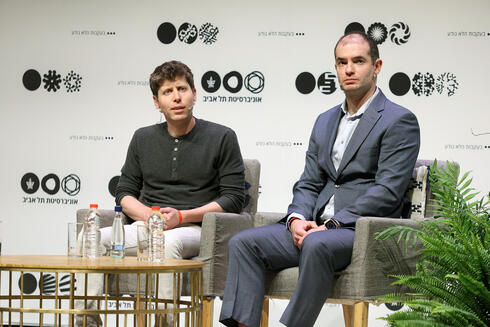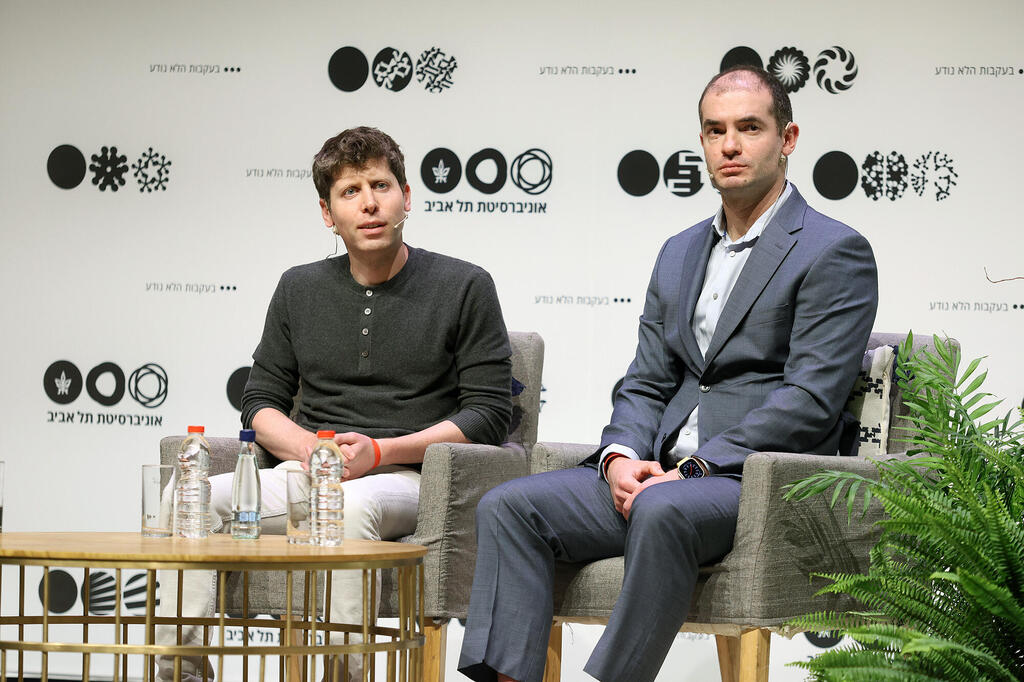
OpenAI Israeli mastermind Ilya Sutskever departs ChatGPT maker
Sutskever played a key role in CEO Sam Altman's dramatic firing and rehiring in November last year. After Altman returned, the chief scientist was removed from the board and his position at the company became unclear.
OpenAI co-founder and chief scientist Ilya Sutskever is leaving the startup at the center of today's artificial intelligence boom.
"OpenAI would not be what it is without him," OpenAI CEO Sam Altman wrote in a message to the company, which OpenAI posted on its blog.
Microsoft-backed OpenAI makes the popular ChatGPT chatbot, which sparked a race among the world's largest tech companies for dominance in the emerging generative AI field.
Jakub Pachocki will be the company's new chief scientist, the company said on its blog.
Pachocki has previously served as OpenAI's director of research and led the development of GPT-4 and OpenAI Five.
"After almost a decade, I have made the decision to leave OpenAI," Sutskever said in a post on X.
Sutskever posted that he is working on a new project "that is very personally meaningful to me about which I will share details in due time."
Sutskever played a key role in Altman's dramatic firing and rehiring in November last year. At the time, Sutskever was on the board of OpenAI and helped to orchestrate Altman's firing.
Days later, he reversed course, signing onto an employee letter demanding Altman's return and expressing regret for his "participation in the board's actions."
After Altman returned, Sutskever was removed from the board and his position at the company became unclear.
Sutskever's exit comes a day after the company said at an event on Monday that it would release a new AI model called GPT-4o, capable of realistic voice conversation and able to interact across texts and images.
Shortly after launching in late 2022, ChatGPT was called the fastest application ever to reach 100 million monthly active users. However, worldwide traffic to ChatGPT's website has been on a roller-coaster ride in the past year and is only now returning to its May 2023 peak, according to analytics firm Similarweb.
Sutskever (37), born in the Soviet Union, immigrated to Jerusalem with his family at the age of 5. He began his academic studies at the Open University but completed all his degrees at the University of Toronto, where he earned a doctorate in machine learning under the guidance of Prof. Geoffrey Hinton, one of the early pioneering researchers in the field of artificial intelligence (AI).
After a postdoctoral fellowship at Stanford University, Sutskever co-founded the artificial intelligence company DNNResearch with Hinton. The company was acquired by Google in March 2013, just four months after it was formed as a spin-off of Hinton's research group. Sutskever worked as a research scientist on the Google Brain team, which focused on basic research in the field of AI, until the end of 2015 when he left to found OpenAI. Sutskever led the research that resulted in groundbreaking models, algorithms, and services such as DALL-E and ChatGPT, which are directly responsible for the GenAI revolution currently underway.
He is considered one of the figures closest to Altman and even accompanied him during his visit to Israel in June 2023, speaking alongside him in his public appearances.
However, he was also one of the four board members who removed Altman from his position as the company's CEO last November, amid differences of opinion that have not been fully clarified. These are likely related to the conflict between Altman and Sutskever regarding the speed at which OpenAI develops and distributes new models and services.














